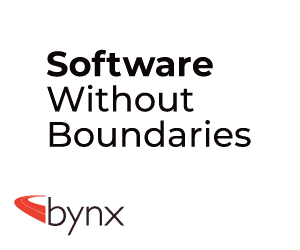
With the closing date looming for comments on a critical UK government consultation into vehicle taxation, the British Vehicle Rental and Leasing Association has issued a call to action for the industry to make its voice heard.
The deadline is February 17 for responses to the consultation on vehicle taxation and the impact of the new Worldwide Harmonised Light Vehicle Test Procedure (WLTP).
The BVRLA has set up a page on its website with a simple form for companies and drivers to complete, which will then be forwarded to the Treasury’s consultation team ahead of the deadline.
Click here to fill in the form.
Following the so-called ‘Dieselgate’ crisis, updated tests on new vehicles have been introduced in the European Union to reflect more accurately their real-world emissions.
This affects the amount of tax paid by drivers, because levies, including company car tax, are directly linked to a vehicle’s official carbon dioxide (CO₂) emission figure.
The government has indicated that doing nothing is an option being considered, but it would push up benefit-in-kind taxes and increase the industry’s tax bill by up to £500 million.
In its response, the BVRLA is calling upon government to:
- Adjust future vehicle excise duty and company car tax bands for 2020 and beyond to account for the increase in WLTP-based CO₂ figures
- Provide a legacy company car tax table for pre-April 2020 vehicles, freezing the rates at 2018/19 level
- Provide a four to five-year view of future company car tax and vehicle excise duty bands, enabling fleets and drivers to plan their vehicle choices
- Ensure that all CO₂-related taxes and charges (e.g. congestion zones, lease rental restriction) are treated consistently under WLTP
BVRLA chief executive Gerry Keaney said: “We continue to work with Treasury to make clear the negative impact of the current vehicle tax system and we are urging others to do the same by sharing any evidence of detriment with us for inclusion in our consultation response.
“With the current tax regime incentivising drivers to opt-out of company car schemes and take cash allowances, there is a real and present danger that without a change in gear on tax, we will see the demise of the company car and a missed opportunity to put cleaner vehicles on the road.
“WLTP is designed to offer motorists greater transparency. It should not be seen as an opportunity for the Chancellor to boost the Treasury coffers.”
When the government published its ‘Road to Zero’ strategy in 2018, it emphasised the need for the transition to zero-emission vehicles to be industry-led.
The BVRLA and its members responded by launching the BVRLA Plug-in Pledge, outlining ambitions to see its members’ combined plug-in vehicle fleet size surge from 50,000 currently to 720,000 by 2025.
Keaney added: “With over 5 million vehicles on fleet, our members have demonstrated their commitment and capability to drive the ‘Road to Zero’ but we now need government to play its part by creating a vehicle tax regime that is fit-for-purpose. That should start by making the right tax adjustments to support a smooth transition to WLTP and adjusting the tax regime to incentivise the uptake of company cars.”
BVRLA members are responsible for a combined fleet of over five million cars, vans and trucks on UK roads, that’s 1-in-8 cars, 1-in-5 vans and 1-in-5 trucks. The vehicle rental and leasing industry supports over 465,000 jobs, adds £7.6bn in tax revenues and contributes £49bn to the UK economy each year.
Click here to provide your view on vehicle taxes and the impact of WLTP.


